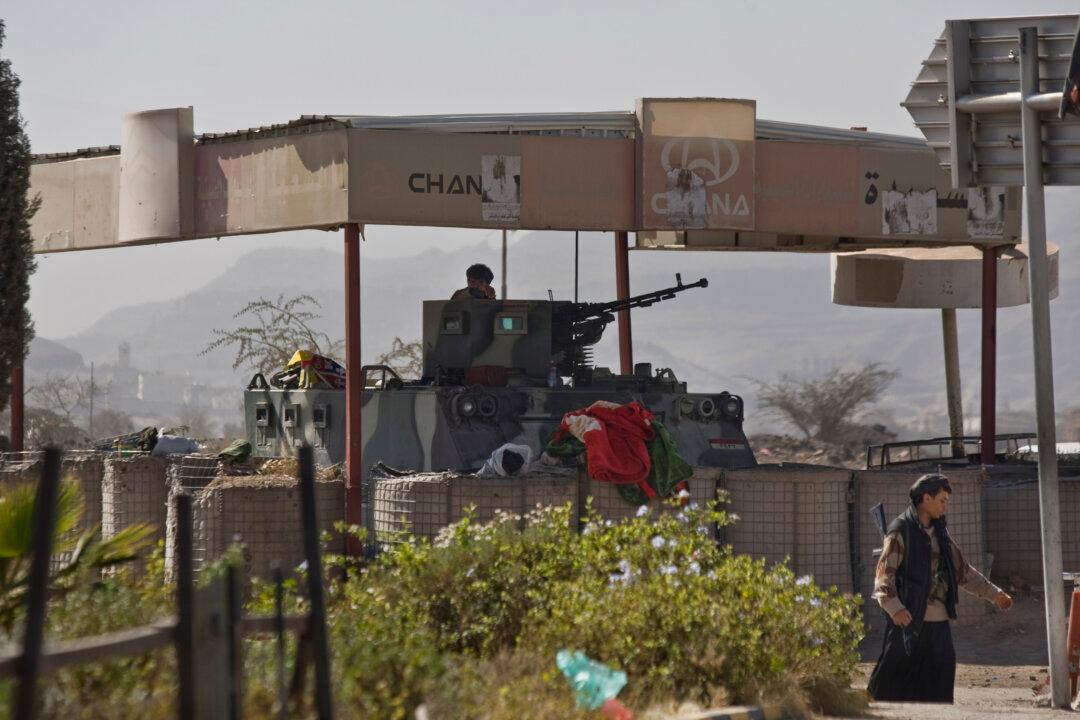Yemen’s Houthi rebels seized weapons belonging to the U.S. Embassy at the Sanaa Airport on Tuesday night, according to preliminary reports. They also wouldn’t allow U.S. Marines to leave with their weapons.
According to the Wall Street Journal, Yemeni employees at the U.S. Embassy in Sanaa said that embassy officials have burned thousands of documents last night inside the embassy. Weapons inside the storehouse were also destroyed.
CNN reported that the Houthis, a Shiite militant group, took U.S. Embassy vehicles.
An unnamed official told the broadcaster that the Houthis numerous took U.S. Marines’ weapons at the airport.

AP Photo/Hani Mohammed





